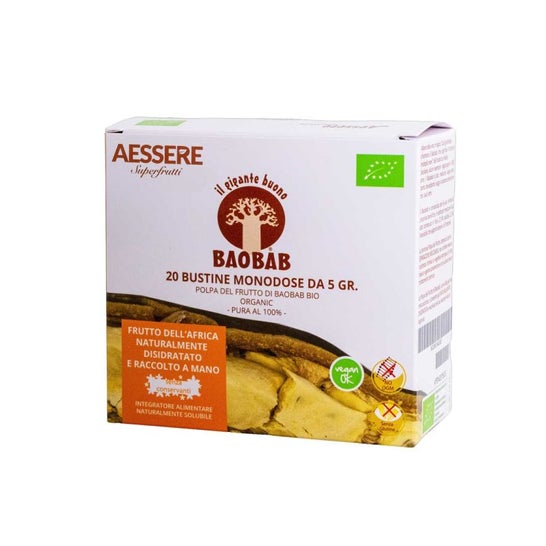The baobab pulp is a dietary supplement with multiple benefits, such as:
- Rich in fiber and vitamin C.
- Supports in cases of fatigue.
- Promotes the absorption of calcium and iron.
- Regulates the intestine.
Its high concentration of vitamin C surpasses that found in oranges and kiwis. One tablespoon a day meets daily needs.
Thanks to its calcium content, it is:
- An alternative to milk for the intolerant.
- A valuable ally for older adults.
It is useful during pregnancy and against anemia, as baobab is a natural source of easily assimilable iron.
The fibers present in the pulp, both soluble and insoluble, are essential for:
- Intestinal regularity.
- Promoting the feeling of satiation in low-calorie diets.
Additionally, it is rich in minerals and amino acids, making it a valuable support for athletes.
Nutritive characteristics:
- Amino acids: Proline, Histidine, Leucine, Lysine, Arginine, Isoleucine, Methionine, Cysteine, Glutamic acid, Valine, Tyrosine, Tryptophan, Threonine.
- Minerals: Calcium, Phosphorus, Iron, Potassium, Sodium, Magnesium, Zinc, Manganese.
- Fibers: Total dietary fiber, soluble fiber, insoluble fiber, cellulose, ash.
- Carbohydrates: Glucose, Fructose, Sucrose, Maltose, Polysaccharides, Starch.
- Vitamins: Carotenoids, B1, B2, B6, PPC.
Note: Dietary supplements do not replace a varied diet and a healthy lifestyle.



